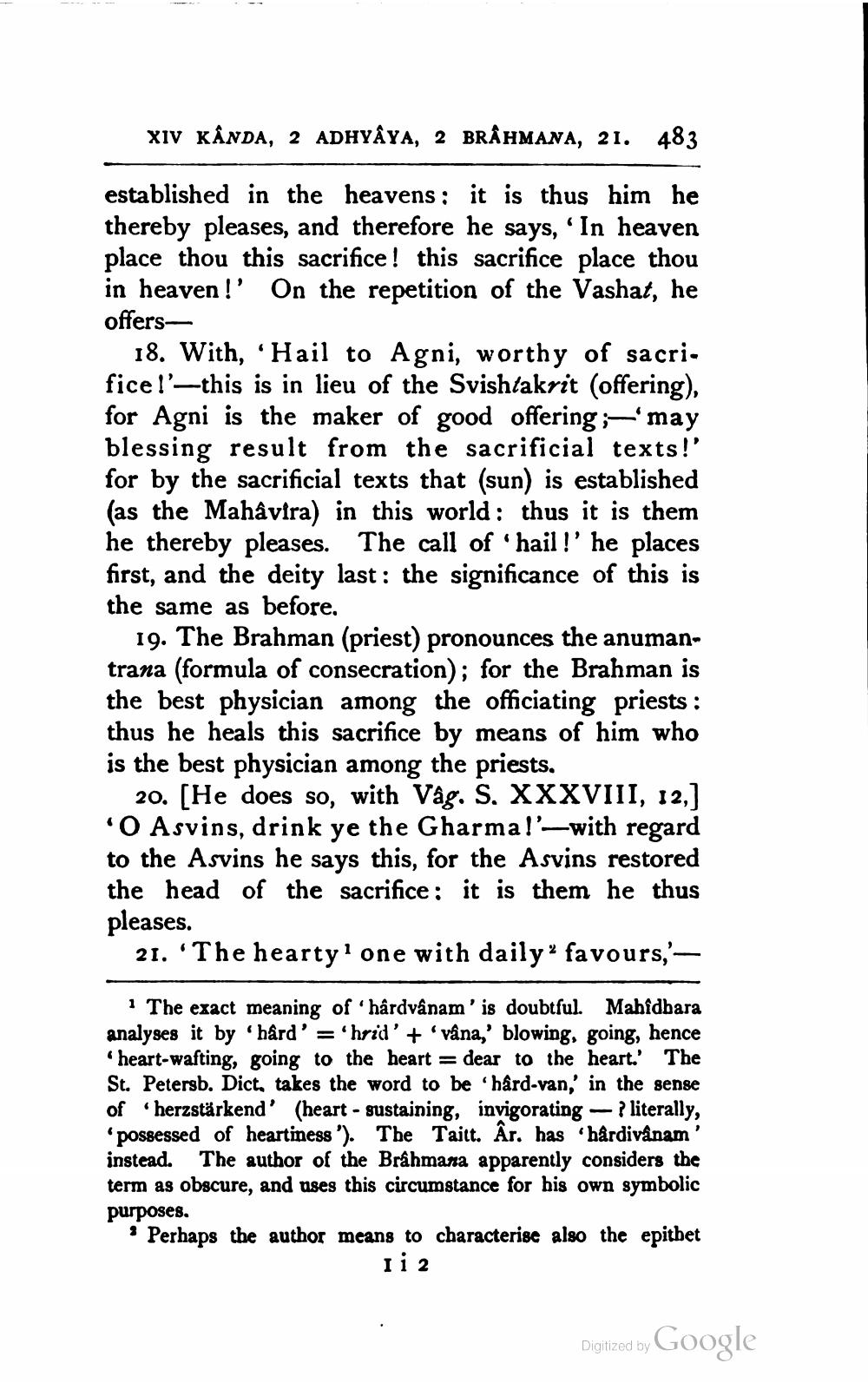________________
XIV KANDA, 2 ADHYAYA, 2 BRAHMANA, 21. 483
established in the heavens: it is thus him he thereby pleases, and therefore he says, 'In heaven place thou this sacrifice! this sacrifice place thou in heaven!' On the repetition of the Vashat, he offers
18. With, 'Hail to Agni, worthy of sacrifice!'-this is in lieu of the Svishtakrit (offering), for Agni is the maker of good offering;-may blessing result from the sacrificial texts!' for by the sacrificial texts that (sun) is established (as the Mahavira) in this world: thus it is them he thereby pleases. The call of 'hail!' he places first, and the deity last: the significance of this is the same as before.
19. The Brahman (priest) pronounces the anumantrana (formula of consecration); for the Brahman is the best physician among the officiating priests: thus he heals this sacrifice by means of him who is the best physician among the priests.
20. [He does so, with Vâg. S. XXXVIII, 12,] 'O Asvins, drink ye the Gharma!'-with regard to the Asvins he says this, for the Asvins restored the head of the sacrifice: it is them he thus pleases.
21. 'The hearty' one with daily" favours,'
1 The exact meaning of 'hârdvânam' is doubtful. Mahîdhara analyses it by 'hard' = 'hrid' + 'vâna,' blowing, going, hence 'heart-wafting, going to the heart dear to the heart.' The St. Petersb. Dict, takes the word to be 'hârd-van,' in the sense of 'herzstärkend' (heart - sustaining, invigorating- ? literally, 'possessed of heartiness'). The Taitt. Ar. has 'I 'hârdivanam instead. The author of the Brahmana apparently considers the term as obscure, and uses this circumstance for his own symbolic purposes.
"
Perhaps the author means to characterise also the epithet I i 2
Digitized by
Google




